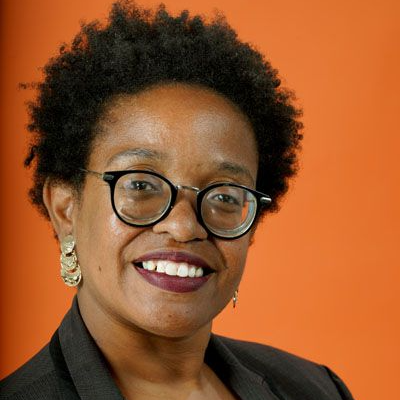Last year, Peacock announced “The Paper,” a newsroom-themed spinoff of “The Office” set at a dying Midwest publication staffed by volunteer reporters. I did not like the sound of that one bit. Actually, that’s an understatement — your girl went off.
I bemoaned the suggestion that good journalism can be merely a hobby as the show seemed like it would portray, and worried that the series would be a mockery of the Fourth Estate as “a democracy’s ability to stand with a record of what is important.”
This week, I watched screeners of the first season, all 10 episodes of which drop Thursday. To quote Baby’s father in “Dirty Dancing” when he realized that hot brooding Johnny had not knocked up his dance partner, “When I’m wrong, I say I’m wrong.”
I was wrong.
Rather than making fun of news, “The Paper” is both a celebration of the need to preserve that tradition and an indictment of the big business money grab that threatens it. Greg Daniels, who also created the American version of “The Office,” blends that show’s tradition of wacky characters in everyday situations with a sweetly sincere appreciation for news and the nerds obsessed with getting it right. I am one of those nerds. Go us.
The story is that the same documentary film crew that followed the employees of Dunder Mifflin Paper Company on “The Office” try to revisit the Scranton, Pennsylvania, business 20 years later. But Michael Scott’s former environs have closed, bought by an outfit called Enervate located in Akron, Ohio. The crew heads to Ohio and finds that Enervate is located in an office tower that once housed the nearly 1,000 employees of the Toledo Truth Teller newspaper.
Read More
Sadly, the once-proud paper now takes up just half a floor, shared with the sales and accounting staff of Softees Toilet Paper. Now there’s just one reporter, Barry (Duane Shepard Sr.), an old guy who sleeps a lot and has a flask at the ready, vain managing editor Esmerelda (Sabrina Impacciatore), whose work is mostly ad-ridden clickbait, and Mare (Chelsea Frei), a former Stars and Stripes reporter who now just cuts and pastes Associated Press stories.
Here’s where I started to tear up, because it became very personal: The Palm Beach Post, where I built my career, had about 300 people in the newsroom in 2008, but after a series of layoffs, buy-outs and retirements, now has about 30. The staff is now all on one floor of the building they share with an upscale grocery store, a salon and a Starbucks in the parking lot. They’re still putting out the best work they can. But it’s harder.
Early descriptions of “The Paper” angered me because they described the non-journalist staff as “volunteers,” which made it sound like they just opened the doors like a twisted Judy Garland/Mickey Rooney movie and invited anybody in to put on a show … er, put out a paper.
Instead, those new reporters are pulled from the Softees staff across the room, whom inexperienced but passionate new editor-in-chief Ned (Domhnall Gleeson) desperately hires for free because he literally just needs bodies to write stories and take pictures. His bosses certainly aren’t paying for anyone.
In a darkly funny scene, both staffs meet Ned, who identifies himself as the new boss — and then promptly lock him in an office because it’s easier to believe he’s high and wandered in by mistake than that he’s a new employee.
It’s not a perfect situation, as the Softees recruits have more enthusiasm than writing experience — “I am on a group text,” one offers. But Ned believes so much in the importance of local news that he’s willing to train salespeople, accountants and anyone else to do it, and they start to get earnestly into it.

“The Paper” understands that money has long become the focus of the corporations and hedge funds that own modern newspapers, and that the actual words are sometimes secondary. That’s why I hate using the term “content” to describe journalism — content could be anything. Packing peanuts are contents. It just fills a box. We should be more than that.
I now understand “The Paper’s” heart, which is closer to the spirit of “Parks and Recreation,” another Daniels creation about sincere, if naive, public servants, than the mean-spiritedness of ”The Office," which, as I mentioned in my previous column, I greatly disliked. I can imagine Jim and Pam making stupid, smug faces at Ned for, you know, caring about something.
Fortunately, our only Dunder Mifflin carryover is accountant Oscar (Oscar Nuñez), who is initially resistant to having his life tracked again before finding out that the waiver he signed at Dunder Mifflin in 2005 is still valid. Oscar’s presence is indicative of the magic of the Truth Teller staff, whose reluctance becomes enthusiasm when he’s able to insert his real-life skills into this new world.
I still maintain that real, trained, professional journalists are the best foundation for a functioning and thriving news organization. I was afraid “The Paper” was suggesting what we do isn’t a real skill. Instead, it believes journalism is a skill that doesn’t mean anything without heart.
It’s right. I was wrong.



Comments
Welcome to The Banner's subscriber-only commenting community. Please review our community guidelines.